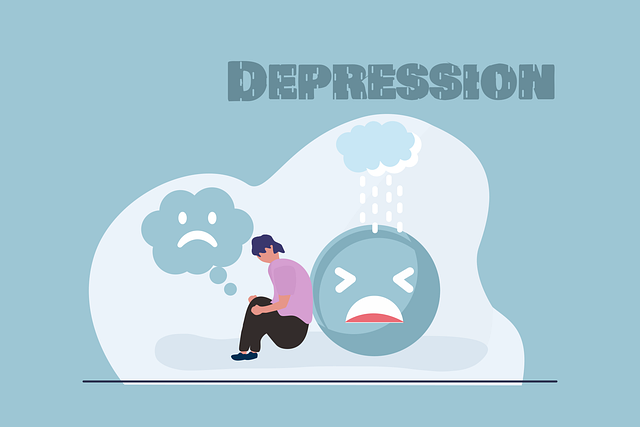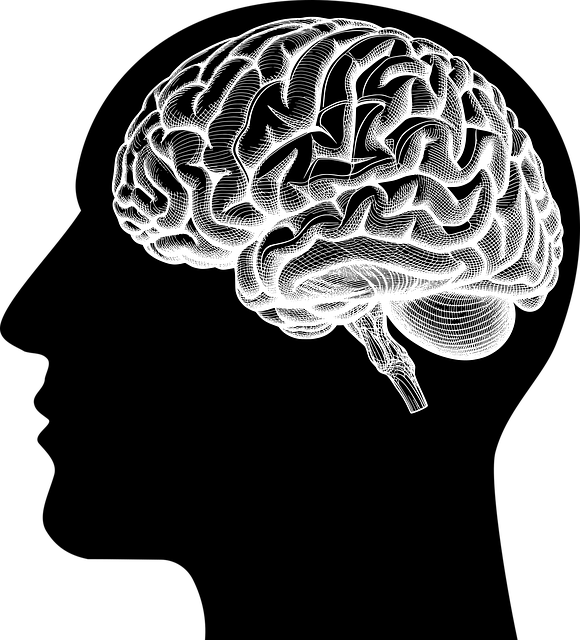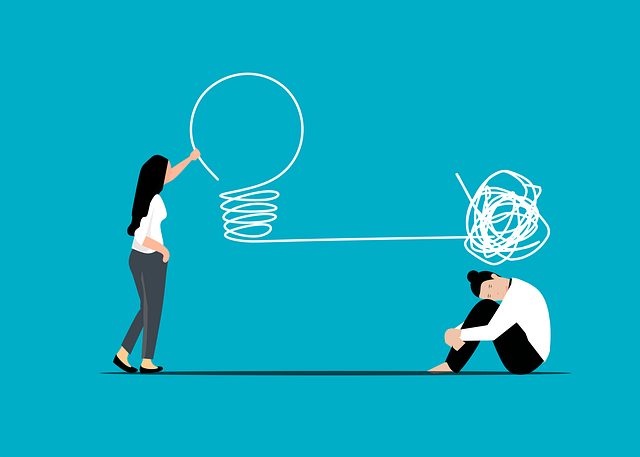Aurora Play Therapy is an innovative approach to stress management for children and adolescents, utilizing play as a tool for emotional well-being promotion. This method recognizes the developing nature of young individuals' coping mechanisms and emotional regulation skills, addressing both symptoms and causes of stress. By integrating play therapy into healthcare provider training, mental illness stigma reduction efforts are enhanced while improving cultural competency in diverse client care. Through games, art, and imaginative play, Aurora Play Therapy encourages self-expression, trauma processing, and the development of healthy coping mechanisms, fostering resilience and long-term well-being. It has gained recognition as a successful program for stress and trauma management among young people, with evaluation methods tailored to measure behavioral changes, self-regulation improvements, and enhanced relationships.
“Stress management is a vital aspect of holistic education, especially with children and adolescents facing increasing pressures. This article explores effective strategies through Aurora Play Therapy, a powerful approach that leverages play to mitigate stress in young minds. We delve into the science behind childhood stress, its impact, and how play therapy serves as a transformative tool.
Sections cover understanding youth stress, the benefits of play therapy, practical techniques for educators, implementation guidelines for schools, and measuring the success of such programs.”
- Understanding Stress in Children and Adolescents
- The Role of Play Therapy in Stress Management
- Aurora Play Therapy Techniques for Teachers
- Implementing Play-Based Stress Relief in Schools
- Measuring the Impact and Success of Play Therapy Programs
Understanding Stress in Children and Adolescents

Stress is a universal experience, but its impact on children and adolescents can be particularly profound. Understanding stress in this age group involves recognizing that young individuals are still developing essential coping mechanisms and emotional regulation skills. Factors such as academic pressure, peer relationships, family dynamics, and changing bodies can all contribute to heightened stress levels. Aurora Play Therapy, a therapeutic approach tailored for younger clients, offers a creative and non-threatening means to help children process and manage their emotions.
Through play, therapists facilitate Emotional Well-being Promotion Techniques that enable kids to express and release built-up tension, anger, or fear. This holistic method addresses not just the symptoms of stress but also its underlying causes. Moreover, Mental Illness Stigma Reduction Efforts can benefit from incorporating Aurora Play Therapy into healthcare provider training. Cultural Competency Training for professionals can ensure they are equipped to recognize and respond sensitively to the unique stress experiences of children and adolescents from diverse backgrounds.
The Role of Play Therapy in Stress Management

Play therapy offers a unique and effective approach to stress management, especially for children and adolescents. Through engaging in play activities, individuals can express their emotions, process traumatic experiences, and develop healthy coping mechanisms. Aurora Play Therapy focuses on this very concept, utilizing creative techniques to help clients unlock inner strength and build confidence. This therapeutic method is particularly beneficial during times of crisis, providing a safe space for exploration and self-discovery.
By immersing oneself in imaginative play, individuals can distance themselves from stressful situations, fostering a sense of calm and resilience. The process encourages emotional awareness and allows for the expression of feelings that might be difficult to articulate verbally. Moreover, play therapy promotes the development of essential life skills, such as problem-solving and social interaction, which contribute to overall well-being and better stress management in the long term.
Aurora Play Therapy Techniques for Teachers

Aurora Play Therapy offers a unique and innovative approach to stress management techniques teaching, specifically tailored for teachers looking to enhance their well-being. This therapeutic method leverages play as a powerful tool to help educators manage and reduce stress in their professional lives. By engaging in play therapy sessions, teachers can learn valuable coping strategies that promote positive thinking and emotional resilience. Through interactive activities and games, they discover new ways to navigate the challenges of the classroom and foster a healthier work-life balance.
The benefits extend beyond personal growth; Aurora Play Therapy also equips educators with enhanced problem-solving skills and improved risk management planning for mental health professionals. These workshops provide a safe space for teachers to explore their emotions, build confidence in handling stress, and develop effective strategies to manage workplace pressures. The positive impact resonates in the classroom, allowing teachers to create more engaging learning environments and better support their students’ overall development.
Implementing Play-Based Stress Relief in Schools

In recent years, there has been a growing recognition of the importance of incorporating play-based stress relief techniques in educational institutions, particularly with the rise of programs like Aurora Play Therapy. This approach to stress management offers a unique and engaging method for students to cope with their anxiety and emotional challenges. By integrating play therapy into school settings, educators can create a safe and supportive environment where children can express themselves through creative means. Such initiatives complement traditional Stress Management Workshops Organization by providing an alternative avenue for mental health support tailored specifically to younger audiences.
Play-based stress relief not only enhances students’ emotional well-being but also serves as an effective risk management planning tool for Mental Health Professionals working in academic environments. Through games, art, and imaginative play, children can learn valuable self-care practices that help them manage stress levels and improve their overall mental health. This proactive approach has the potential to foster a resilient mindset among students, equipping them with essential life skills even at a young age, thereby promoting a healthier and happier school environment.
Measuring the Impact and Success of Play Therapy Programs

Play therapy has emerged as a powerful tool in the field of mental health, especially for children and adolescents dealing with stress and trauma. Measuring the impact and success of Aurora Play Therapy programs is an essential step in understanding their effectiveness. Through structured assessments and qualitative data collection, therapists can evaluate improvements in clients’ emotional expression, social skills, and coping strategies.
The Mental Health Policy Analysis and Advocacy framework can guide the evaluation process by identifying key performance indicators (KPIs) aligned with the program’s objectives. These KPIs might include changes in behaviour, enhanced self-regulation, and improved relationships as measured through play observations, client interviews, and parent/caregiver feedback. Integrating Social Skills Training techniques into the assessment allows for a holistic view of the child’s development, ensuring that Play Therapy programs not only address immediate concerns but also foster long-term mental health resilience. Additionally, Mental Health Education Programs Design principles can be employed to tailor interventions based on evaluation outcomes, thereby optimising the benefits of play therapy for each individual participant.
Stress management techniques, such as Aurora Play Therapy, offer a holistic approach to addressing childhood stress. By integrating play-based interventions into educational settings, teachers can create nurturing environments that promote emotional well-being. The success of programs like these is evident through measured improvements in students’ mental health and academic performance, highlighting the significant role play therapy can play in fostering resilient and happy young individuals.














